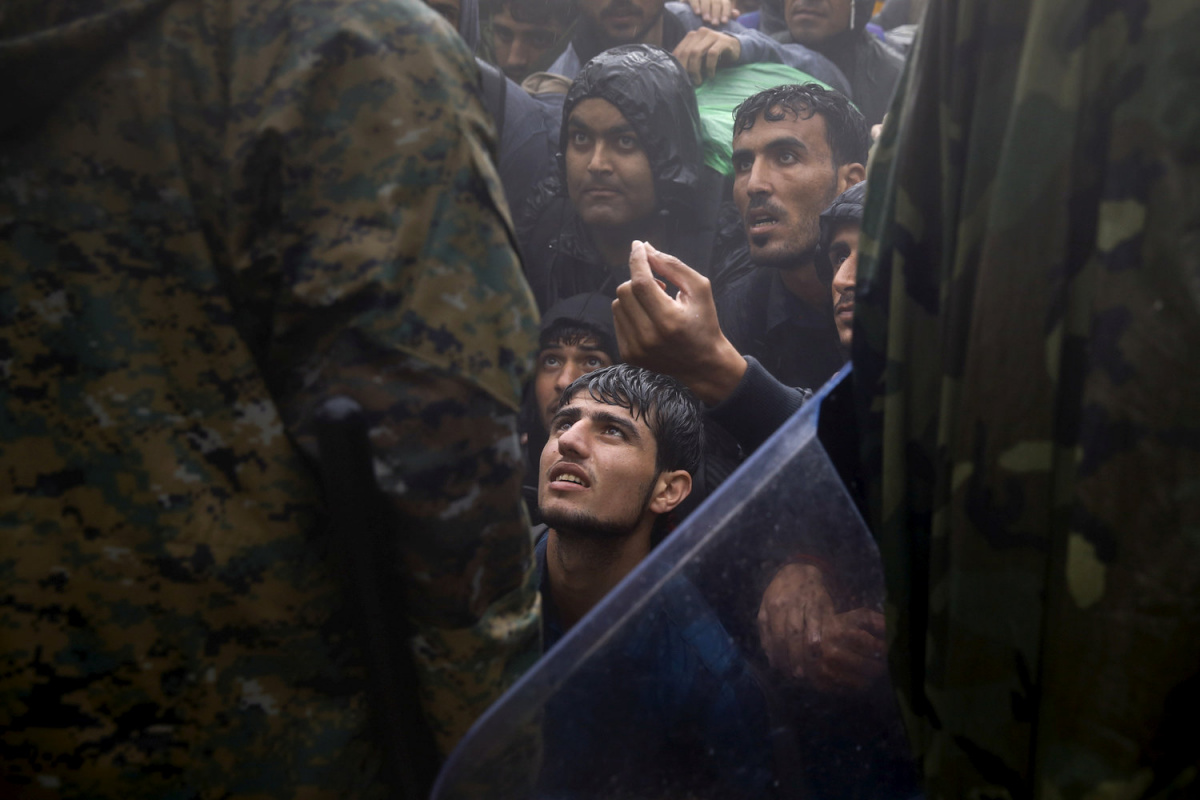I've Worked with Refugees for Decades. Europe's Afghan Crime Wave Is Mind-Boggling.

This was a honeymoon that could not last. Some of the upcoming difficulties had been anticipated: that the newcomers did not speak the local languages, might be traumatized, would probably take a long time to find their footing, and had brought their ethnic, religious and sectarian conflicts with them, causing them to get into battles with each other. All of these things happened but—as Angela Merkel promised—were manageable. “Wir schaffen das.”
But there was one development that had not been expected, and was not tolerable: the large and growing incidence of sexual assaults committed by refugees against local women. These were not of the cultural-misunderstanding-date-rape sort, but were vicious, no-preamble attacks on random girls and women, often committed by gangs or packs of young men. At first, the incidents were downplayed or hushed up—no one wanted to provide the right wing with fodder for nationalist agitation, and the hope was that these were isolated instances caused by a small problem group of outliers. As the incidents increased, and because many of them took place in public or because the public became involved either in stopping the attack or in aiding the victim afterwards, and because the courts began issuing sentences as the cases came to trial, the matter could no longer be swept under the carpet of political correctness. And with the official acknowledgment and public reporting, a weird and puzzling footnote emerged. Most of the assaults were being committed by refugees of one particular nationality: by Afghans.
Actually Afghans should not even have been part of the refugee tide, at least not in significant numbers. It was the Syrians who were expected. Afghanistan, a place of lingering and chronic conflict, is no longer on the official refugee roster—that’s reserved for acute political and military emergencies. Still, European authorities and the public were sympathetic, and could understand why Afghans would want to leave a country rife with suicide bombings and empty of opportunity. Also, Europeans held a baseline positive sentiment towards Afghanistan. Many baby-boomer Europeans had, in their hippie days of yore, traversed that country in the legendary VW buses, and retained fond memories of friendly, hospitable people. Later everyone had mourned the loss of the Bamiyan Buddhas and felt for the poor people suffering under Taliban rule. And after that, NATO had been part of the “coalition of the willing.” Europeans were predisposed to be positive towards Afghan refugees. But it quickly became obvious that something was wrong, very wrong, with these young Afghan men: they were committing sex crimes to a much greater extent than other refugees, even those from countries that were equally or more backward, just as Islamic and conservative, and arguably just as misogynist.
This is not an article that has been fun for me to write. I have worked on issues related to refugees for much of my professional life, from the Pakistani camps during the Soviet occupation of Afghanistan to Yemen, Sudan, Thailand, Ethiopia, Djibouti, Lebanon, Bosnia, Nicaragua and Iraq, and have deep sympathy for their plight. But nowhere had I encountered a phenomenon like this one. I had seen refugees trapped in circumstances that made them vulnerable to rape, by camp guards or soldiers. But for refugees to become perpetrators of this crime in the place that had given them asylum? That was something new. Further, my personal and professional life has endowed me with many Afghan and Afghan American friends, and there is nothing collectively psychopathic about them. They are doctors, shopkeepers, owners of Japanese restaurants, airport sedan drivers, entrepreneurs, IT experts, salesladies at Macy’s—they’re like everyone else. The parent generation tends to be a bit stiff, formal and etiquette conscious. It is impossible to imagine any of them engaging in the sort of outlandish, bizarre and primitive sexual aggression their young compatriots are becoming infamous for. Yet here we are.
A few weeks ago, the Austrian city of Tulln declared a full stop to any further refugee admissions. As the mayor made clear, that decision was aimed at Afghans, but for legal and administrative reasons it could only be promulgated in a global way. That had not been the city’s intention—to the contrary, it had just completed the construction of an expensive, brand-new facility for incoming asylum seekers, which would now, the mayor declared, be given over to another purpose. His exact words: “We’ve had it.” The tipping point, after a series of disturbing incidents all emanating from Afghans, was the brutal gang rape of a fifteen-year-old girl, snatched from the street on her way home, dragged away and serially abused by Afghan refugees.
And that was just one in a string of outrage-inducing occurrences, all of them going to the account of Afghans.






































No comments:
Post a Comment